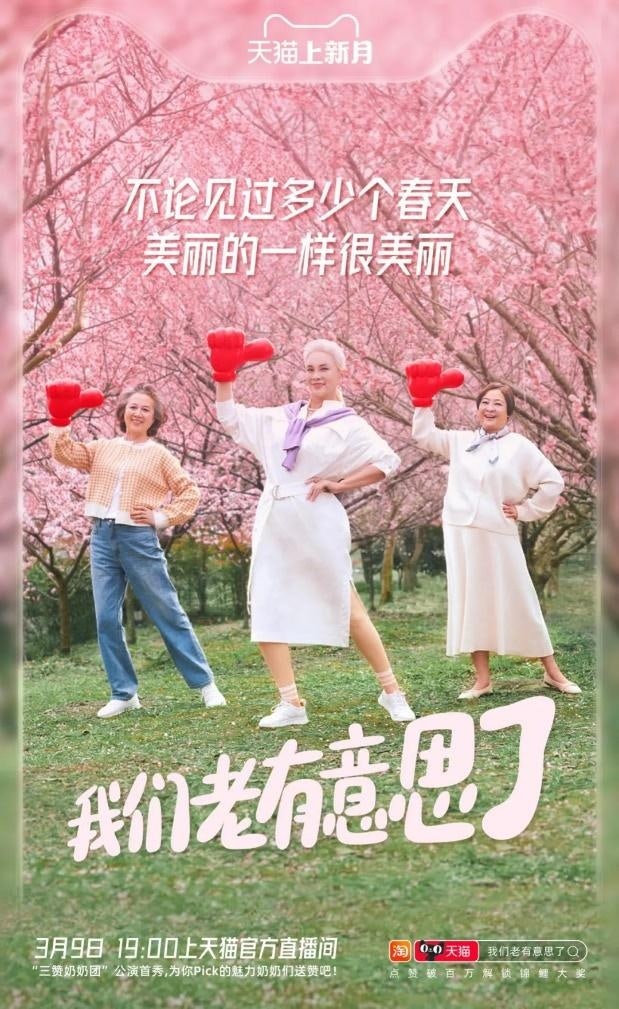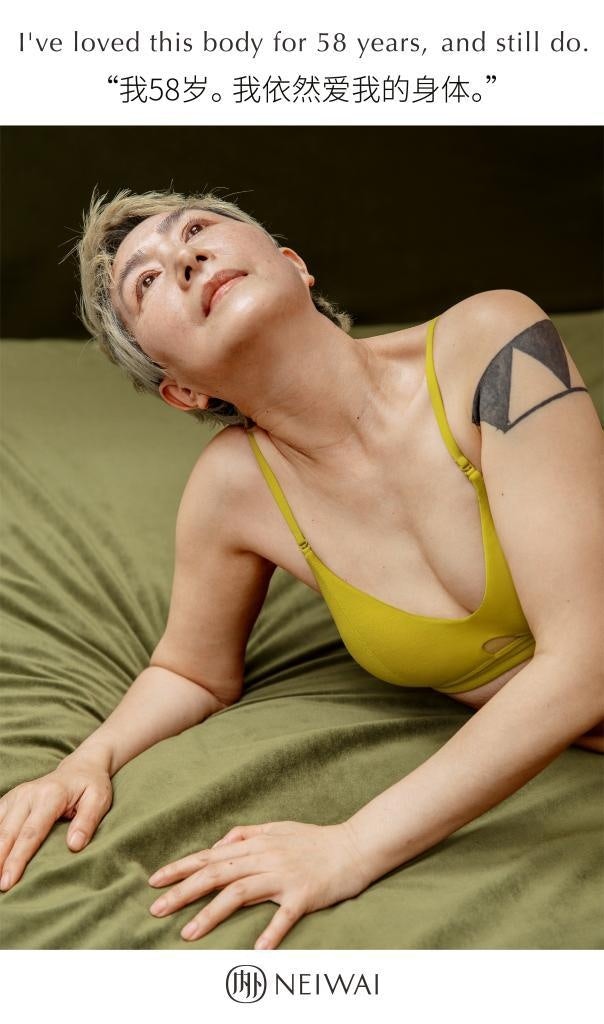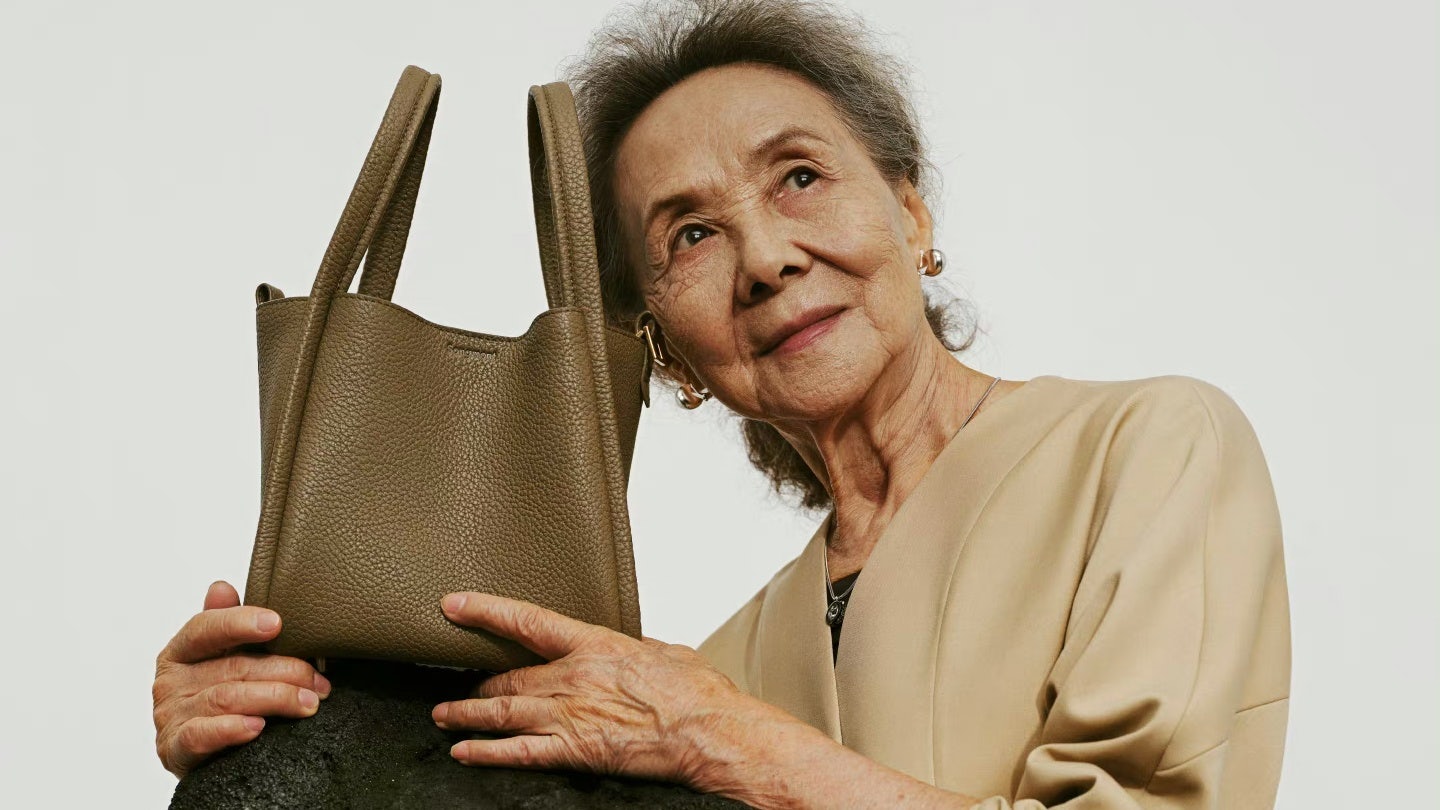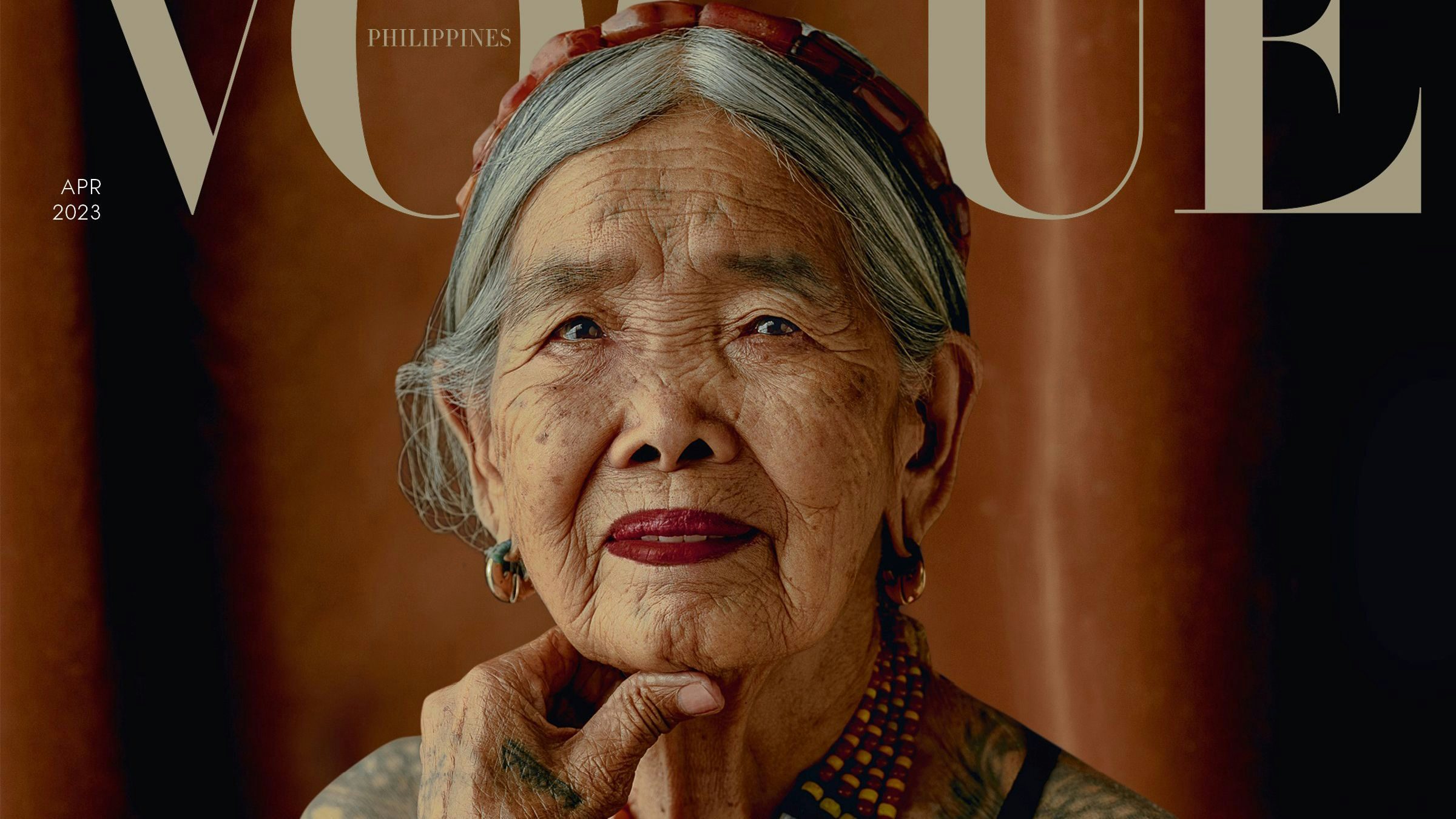On March 9, Tmall’s official livestreaming account hosted a three-hour live shopping show during its evening prime time, as the platform does every day. But instead of featuring a group of mid-20s, fresh-faced models — the typical hosts for such livestreaming sessions — the show was presented by three women aged over 60.
Opening with a runway walk, the session then showed the three senior hosts sitting in a brightly colored studio, introducing audiences to a wide range of products including makeup, gadgets and healthcare items.
These three “silver-haired grandma hosts,” as Tmall referred to them in social media posts, were part of the platform’s social commerce initiative to recruit more senior live-streamers and diversify its streaming content.

Whether it’s senior livestream hosts on e-commerce platforms, product campaigns ditching airbrushed filters for older models, or images that better align with seniors’ contemporary lifestyles, content relating to mature consumers is on the rise across Chinese media.
For instance, in 2020, the megahit TV idol show Sisters Who Make Waves showcased performers aged over 35. And last year, Chinese tech giant Tencent launched a mini docuseries, I Want to Grow Old Like This, telling the stories of six senior influencers who started a second career late in life. Also, in October 2022, Tmall rolled out a pop-up initiative that paired senior content creators with Gen Z influencers to push fashion merchandise to consumers of all age groups.

Targeting China’s expanding ranks of senior consumers is a smart move. The country’s population of over 60-year-olds has already surpassed 267 million, according to the 2021 census. By 2035, this group is expected to exceed 400 million and make up 30 percent of China’s population.
Business opportunities aside, the media’s changing representation of older groups is finding a receptive audience among China’s younger generations. For Gen Z and millennial consumers, it’s the “cool” element of these seniors’ stories that matters most.
“Many younger consumers today are attracted to brands that are woke enough to address pressing social issues, and ageism is top of mind,” says Lin Chunyi, a social media executive at Shanghai-based marketing consultancy Ylab. “These consumers are aware that they will grow old one day, too. So, portraying aging in a positive, inspiring way, will resonate with younger consumers.”
The rising visibility of senior influencers on social media may also play a role in changing perceptions of what aging entails.
“Older women have always been shamefully sidelined in fashion and beauty ads. Whenever I want to buy something, I always see a face 30 years younger than mine in the store window. Even when fashion items are for women my age, they are always formless and ugly. I have, though, sensed a shift in attitudes in recent years, as people like myself are making our voices heard on social media,” says Su Chenyun, a 65-year-old fashion blogger who goes by the moniker Auntie Su on Xiaohongshu.
“I ask brands to do me a favor, that is, not to see elderly women as elderly women, but just as normal, stylish women,” Su says.
On Xiaohongshu, accounts focused on senior fashion, such as @Senior Fashion Club and @Senior Girls Group 101, have proliferated over the past few years.
China’s culture-forward brands, including underwear label Neiwai and accessories brand Songmont, are increasingly age-inclusive in their advertising.
In 2019, Neiwai’s “No body is nobody” campaign — arguably China’s first body-positivity campaign — showcased women of various body types and ages, including gray-haired senior models who rarely make an appearance in China’s youth-idolizing advertising landscape.

Ma Jie, the senior model who starred in Neiwai’s ads, later became a social media personality and recently appeared in accessory label Lost in Echo’s “Lie Girls” campaign.
Songmont, Chinese trendsetting bag maker par excellence, is another pioneer in age-inclusive marketing. For Women’s Day last year, the brand published a campaign series photographing the older artisans who hand-make its leather bags in rural Shangxi province, styling them with a contemporary chic look that’s rarely seen in ads featuring senior models.
In October last year, the brand chose Wu Yanzhu, an 84-year-old actress who began acting in her late 70s, as one of the three models in its latest video campaign.
“I want to see women and men my age participate in fashion just like the younger people. I do not want to be treated as a senior person who only fits into certain styles,” said Su, the senior fashion blogger. She added that most of her social media followers comprise 20- to 30-year-olds, who, thanks partly to her stories, now “see growing old as less scary.”
For her, brands should represent more older people in their content.
“As a society, we should no longer see aging or retiring as an end point, but the beginning of endless possibilities,” says Su.
Key Takeaways#
- Tmall featured three senior women over 60 as hosts for its livestream shopping show, highlighting a trend towards age diversity in Chinese social media and advertising.
- Initiatives like the TV show Sisters Who Make Waves and Tencent's docuseries on senior influencers reflect a growing representation of mature consumers in Chinese media, aiming to change perceptions of aging.
- China's senior population is rapidly growing, presenting significant business opportunities for brands, and media representation of this demographic is resonating positively with younger consumers.
- Brands are encouraged to embrace age-inclusive marketing strategies, portraying aging in a positive light to appeal to a broader consumer base, including the influential Gen Z and millennials.
- The trend towards celebrating aging and inclusivity in media and advertising is expected to expand, encouraging brands to diversify their content and product offerings to cater to all age groups.

